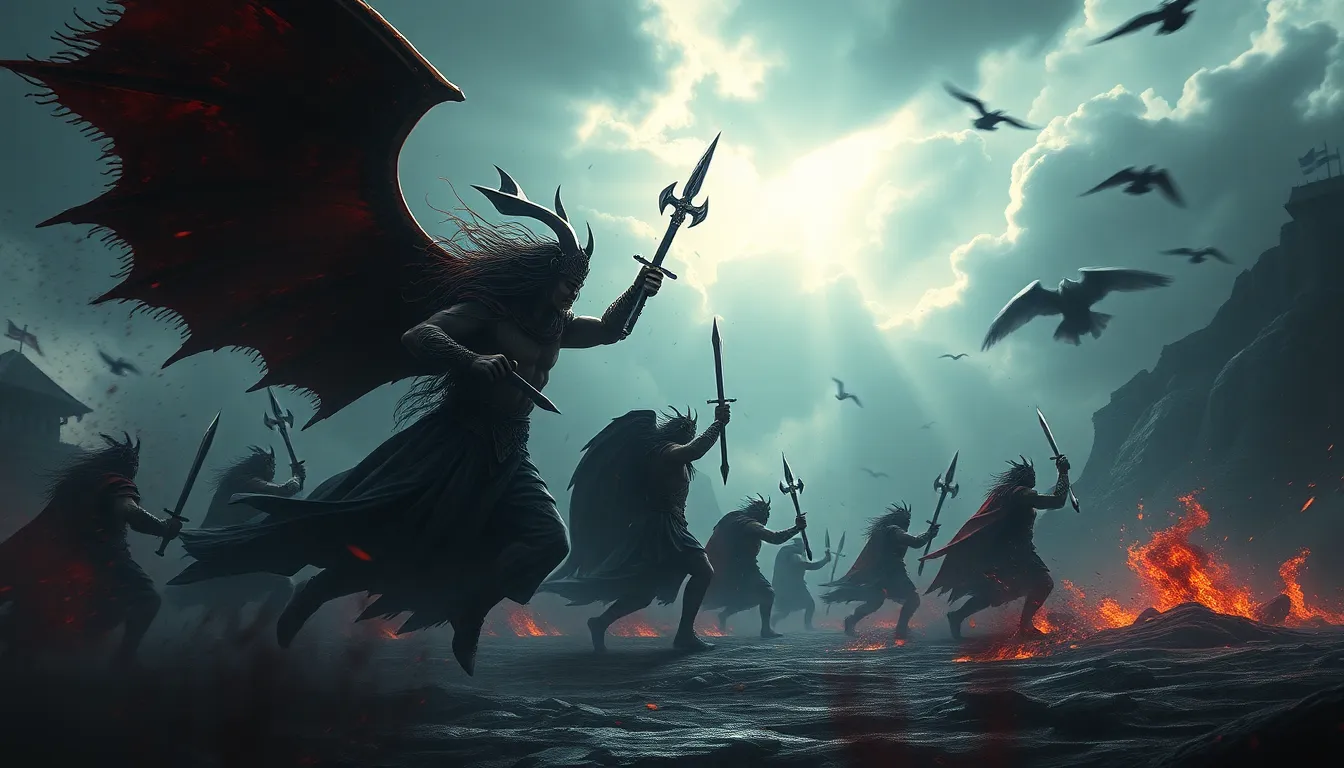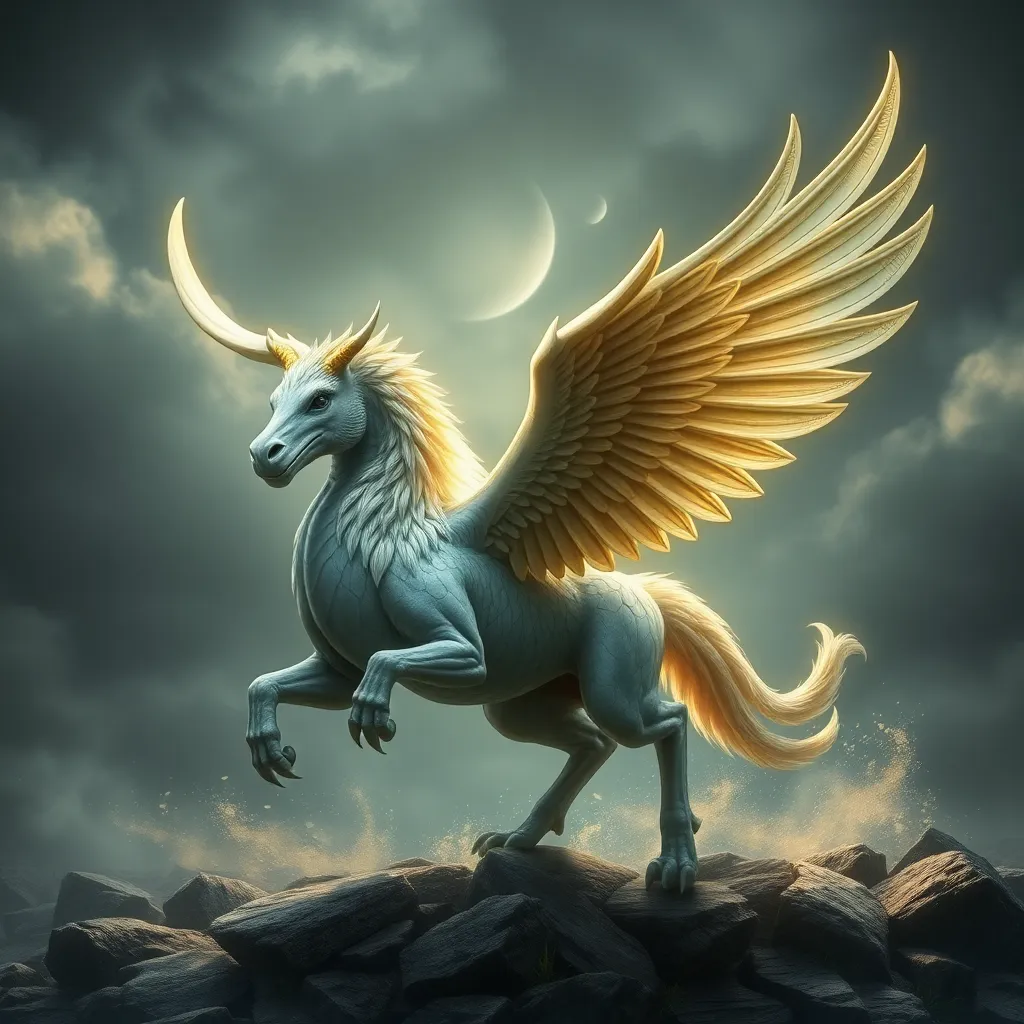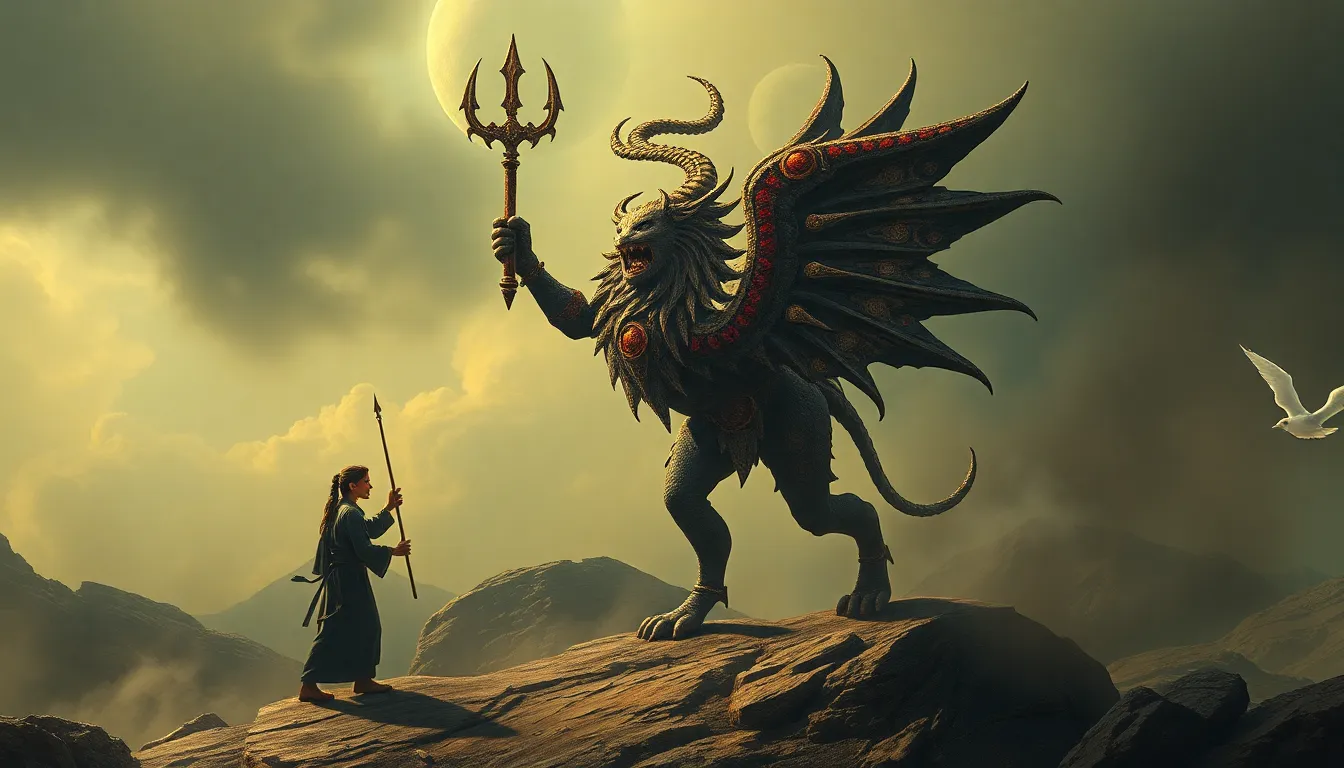Blood and Bravery: Mythological Battles That Inspire
I. Introduction
Mythological battles hold a significant place in the narratives of various cultures around the world. These epic confrontations are not mere tales of conflict; they encapsulate the values, beliefs, and ideals of societies, providing insight into what they hold sacred. The interplay of blood, bravery, and heroism in these stories serves to inspire and educate generations. This article aims to explore notable mythological battles from different cultures, examining their themes and the impact they have had on humanity’s collective consciousness.
II. The Historical Context of Mythological Battles
Throughout history, mythology has played a vital role in ancient societies by providing a framework for understanding the world. Mythological battles often symbolize the cultural values and ideals of a civilization, reflecting its fears, aspirations, and moral lessons.
- Greek Culture: The tales of gods and heroes shaped their understanding of fate and virtue.
- Norse Society: The stories of warrior gods exemplified bravery and the acceptance of fate.
- Hindu Tradition: Epic narratives illustrated the complexities of duty and righteousness.
Many cultures have rich traditions of mythological battles that not only entertain but also serve as moral compasses for their people. These stories resonate through time, influencing art, literature, and even modern-day storytelling.
III. Greek Mythology: The Trojan War
The Trojan War is one of the most famous mythological battles, immortalized in works like Homer’s “Iliad.” This epic conflict involved key figures such as Achilles, Hector, and Helen of Troy, and it was triggered by a combination of love, jealousy, and honor.
Themes of honor, sacrifice, and heroism are prevalent throughout this narrative. The war serves as a backdrop for exploring the complexities of human emotions and the consequences of pride and wrath. Achilles’ journey from rage to reconciliation exemplifies the heroic struggle, while the fall of Troy illustrates the tragic outcomes of war.
The impact of the Trojan War on Western literature and culture is profound. It has inspired countless adaptations, from ancient plays to modern films, reinforcing the idea that the echoes of these mythological battles continue to shape our understanding of heroism and sacrifice.
IV. Norse Mythology: Ragnarok
In Norse mythology, Ragnarok represents the ultimate battle between gods and giants, signifying the end of the world and the cyclical nature of existence. This cataclysmic conflict involves notable figures such as Odin, Thor, and Loki, and it is characterized by destruction and rebirth.
The symbolism of Ragnarok reflects the Norse ideals of bravery and fate. The warriors, known as the Einherjar, prepare for this final battle in Valhalla, showcasing their valor and acceptance of their destiny. The destruction during Ragnarok is not merely an end but also a precursor to renewal, emphasizing the belief in rebirth and the continuation of life.
V. Hindu Mythology: The Kurukshetra War
The Kurukshetra War is central to the epic narrative of the “Mahabharata,” a story that delves into the moral dilemmas faced by its characters. Key figures such as Arjuna and Krishna navigate complex issues of duty, righteousness, and the nature of conflict.
Arjuna’s internal struggle before the battle highlights the profound lessons of duty (dharma) and the moral complexities of war. Krishna’s guidance serves as a philosophical foundation, emphasizing the importance of righteousness over personal desires.
The Kurukshetra War teaches vital lessons about sacrifice, loyalty, and the consequences of conflict, making it a cornerstone of Hindu philosophy and a source of inspiration for countless generations.
VI. Mesopotamian Mythology: The Epic of Gilgamesh
The “Epic of Gilgamesh” is one of the earliest known works of literature, chronicling the journey of its titular hero and his battles against various foes. Gilgamesh’s quest for fame and immortality is interwoven with themes of friendship, mortality, and the human condition.
Throughout his adventures, Gilgamesh confronts formidable adversaries, including the monstrous Humbaba and the Bull of Heaven. These battles symbolize humanity’s struggle against fate and the inevitability of death.
Gilgamesh ultimately learns that true glory lies not in eternal life but in the legacy one leaves behind, making this epic a timeless reflection on the human experience.
VII. Celtic Mythology: The Battle of Moytura
The Battles of Moytura are significant events in Celtic mythology, representing the conflicts between the Tuatha Dé Danann and the Fomorians. These battles illustrate the themes of fate and destiny, which are central to Celtic warrior culture.
The first battle involves the Tuatha Dé Danann’s victory over the Fomorians, symbolizing the triumph of civilization over chaos. The second battle, however, reveals the complexities of heroism, as it leads to tragic consequences and showcases the fragility of victory.
The legacy of these myths continues to influence modern storytelling, with their themes resonating in contemporary literature and film, serving as reminders of the enduring power of fate and the struggles of courage.
VIII. African Mythology: The Battle of the Gods in Yoruba Tradition
In Yoruba mythology, divine battles are central to the pantheon of gods, with figures such as Ogun, the god of war, and Shango, the god of thunder, often at odds. These conflicts shape the cultural values of the Yoruba people, reflecting themes of power, justice, and morality.
The battles among these deities are not just physical confrontations; they also embody the struggles between good and evil, order and chaos, often providing moral lessons that resonate with societal values.
The significance of these divine battles extends beyond myth, as they are integral to Yoruba religious practices and continue to influence contemporary narratives, highlighting the themes of justice and communal integrity.
IX. Modern Interpretations and Adaptations of Mythological Battles
The influence of mythological battles extends into contemporary literature and film, where these ancient narratives are often reinterpreted and adapted for modern audiences. From blockbuster movies to bestselling novels, the themes of conflict, heroism, and sacrifice remain relevant today.
- Contemporary Literature: Authors often draw on mythological battles to explore modern issues, infusing ancient themes with new relevance.
- Film Adaptations: Movies like “Troy” and “Thor” bring these epic stories to life, showcasing the timeless nature of these narratives.
- Video Games: Many games incorporate mythological battles, allowing players to engage with these stories interactively.
These modern retellings serve to keep the spirit of mythological battles alive, connecting us with the past while simultaneously addressing the challenges of the present, proving that the themes of blood and bravery continue to inspire and resonate across generations.




